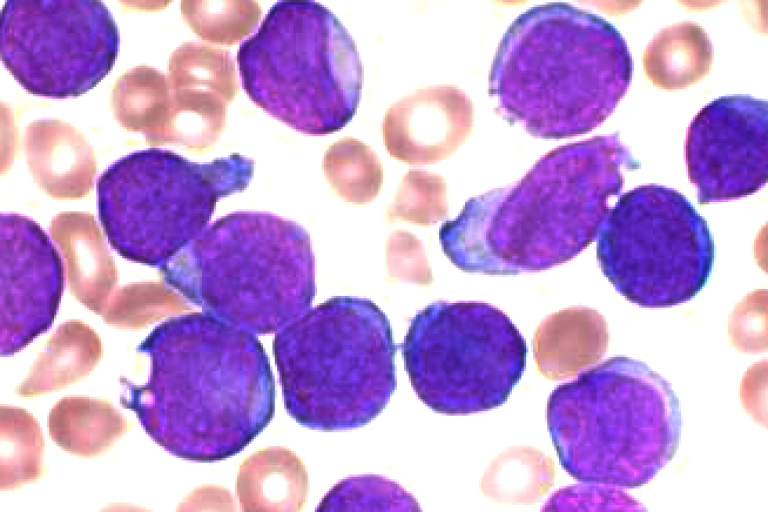Researchers welcome NHS roll out of cutting edge cancer treatment
7 September 2018
NHS England's announcement that children and young people with leukaemia will receive a 'revolutionary' treatment has been welcomed by the UCL Cancer Institute, which has helped develop the therapy.

As part of a commercial deal between NHS England and manufacturer Novartis, young patients with a form of leukaemia, called B-cell acute leukaemia, are set to receive CAR T (a chimeric antigen receptor T-cell) therapy within weeks.
This move comes less than 10 days after the treatment was granted its European marketing authorisation, which represents one of the fastest funding approvals in the 70 year history of the NHS.
The Tisagenlecleucel form of CAR T, also known as Kymriah, is the first in a wave of treatments in a new era of cellular therapies.
Unlike conventional cancer treatments, CAR T-cell therapy is specifically manufactured for each individual patient and involves reprogramming the patient's own immune system cells, which are then used to target their cancer. It has been shown in trials to cure some patients, even those with advanced cancers where other treatments have failed.
UCL has a growing CAR T-cell programme based at the UCL Cancer Institute, which includes expertise, ranging from protein and T-cell engineering through to clinical grade cell manufacture.
There are currently nine phase I clinical studies of experimental CAR T-cell approaches open at UCL affiliated hospitals (UCLH and Great Ormond Street Hospital) which stem directly from this programme. Some of these studies are testing next generation CAR T-cells for B-cell acute leukaemia.
Following the NHS announcement, Dr Claire Roddie (UCL Cancer Institute), who is responsible for the care of patients on UCL's CAR T clinical trials, said: "Having seen first hand how CAR T-cells can profoundly benefit the lives of our patients with an otherwise incurable disease, I am delighted to see Kymriah available on the NHS so quickly.
"I believe this is the first of many new revolutionary CAR T-cell therapies to be made widely available. I look forward to seeing many more come through including some we are developing at UCL."
Tisagenlecleucel, which costs around £282,000 per patient at its full list price, is licenced to treat patients up to 25 years old with B cell acute lymphoblastic leukaemia (ALL) that is refractory, in relapse post-transplant or in second or later relapse. Patients in trials had an average age of 11.
The process of producing such a treatment is immensely complex and preparations are in their final stages. The first three NHS hospitals to go through the international accreditation process for the provision of CAR T-cell therapy for children are in London, Manchester and Newcastle. Subject to passing accreditation requirements the first treatments could begin in a matter of weeks.
Links
Image
Credit: Wikimedia Commons
Media contact
Henry Killworth
Tel: +44 207 679 5296
Email: h.killworth [at] ucl.ac.uk
 Close
Close

